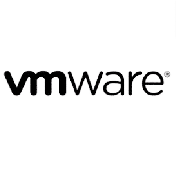Seminarinhalt
Denn die Entwickler- und IT-Operations-Teams können über unterschiedliche Qualifikationen und Ziele verfügen. So möchten Entwickler häufig neue Funktionen zu einer App hinzufügen, während die Operations-Teams sich mehr dafür interessieren, dass die App auch nach ihrer Veröffentlichung stabil läuft.
DevOps Engineers kommt eine wichtige Rolle zu, Programmierinteressen, Anwendungswartung und -verwaltung zusammenzuführen. Um all diese Aufgaben ausführen zu können, muss man nicht nur Entwicklungs-Lifecycles, sondern auch die DevOps-Kultur sowie ihre Philosophie, Praktiken und Tools verstehen.
Programm
- Describe Core Azure Concepts
- Describe Core Azure Services
- Describe Core Solutions and Management Tool on Azure
- Describe General Security and Network Security Features
- Describe Identity, Governanace, Privacy and Compliance Features
- Describe Azure Cost Management and Services Level Agreements
- Explore Azure App Service
- Configure web app settings
- Scale apps in Azure App Service
- Explore Azure App Service deployment slots
- Explore Azure Functions
- Develop Azure Functions
- Explore Azure Blob storage
- Manage the Azure Blob storage lifecycle
- Work with Azure Blob storage
- Explore Azure Cosmos DB
- Work with Azure Cosmos DB
- Manage container images in Azure Container Registry
- Run container images in Azure Container Instances
- Implement Azure Container Apps
- Explore the Microsoft identity platform
- Implement authentication by using the Microsoft Authentication Library
- Implement shared access signatures
- Explore Microsoft Graph
- Implement Azure Key Vault
- Implement managed identities
- Implement Azure App Configuration
- Explore API Management
- Explore Azure Event Grid
- Explore Azure Event Hubs
- Discover Azure message queues
- Monitor app performance
- Develop for Azure Cache for Redis
- Develop for storage on CDNs
- DP-3012 - Implementierung einer Datenanalyselösung mit Azure Synapse Analytics
- DP-3011 - Implementierung einer Datenanalyselösung mit Azure Databricks
- DP-3014 - Implementierung einer Machine Learning-Lösung mit Azure Databircks
- DP-3007 - Trainieren und Bereitstellen eines Machine learning-Modells mit Azure Machine Learning
- Introduction to DevOps
- Choose the right project
- Describe team structures
- Choose the DevOps tools
- Plan Agile with GitHub Projects and Azure Boards
- Introduction to source control
- Describe types of source control systems
- Work with Azure Repos and GitHub
- Structure your Git Repo
- Manage Git branches and workflows
- Collaborate with pull requests in Azure Repos
- Identify technical debt
- Explore Git hooks
- Plan foster inner source
- Manage Git repositories
- Explore Azure Pipelines
- Manage Azure Pipeline agents and pools
- Describe pipelines and concurrency
- Explore continuous integration
- Implement a pipeline strategy
- Integrate with Azure Pipelines
- Introduction to GitHub Actions
- Learn continuous integration with GitHub Actions
- Design a container build strategy
- Introduction to continuous delivery
- Create a release pipeline
- Explore release recommendations
- Provision and test environments
- Manage and modularize tasks and templates
- Automate inspection of health
- Introduction to deployment patterns
- Implement blue-green deployment and feature toggles
- Implement canary releases and dark launching
- Implement A/B testing and progressive exposure deployment
- Integrate with identity management systems
- Manage application configuration data
- Explore infrastructure as code and configuration management
- Create Azure resources using Azure Resource Manager templates
- Create Azure resources by using Azure CLI
- Explore Azure Automation with DevOps
- Implement Desired State Configuration (DSC)
- Implement Bicep
- Introduction to Secure DevOps
- Implement open-source software
- Software Composition Analysis
- Static analyzers
- OWASP and Dynamic Analyzers
- Security Monitoring and Governance
- Explore package dependencies
- Understand package management
- Migrate consolidating and secure artifacts
- Implement a versioning strategy
- Introduction to GitHub Packages
- Implement tools to track usage and flow
- Develop monitor and status dashboards
- Share knowledge within teams
- Design processes to automate application analytics
- Manage alerts, blameless retrospectives and a just culture
- Prinzipien und zugrundeliegende Theorie von Scrum
- Überblick über das Scrum Team
- Scrum Events
- Scrum Artefakte
- Die Rolle des Scrum Master
- Die Rolle des Product Owner
- Theorie-Input & Erfahrungslernen
- Vorbereitung auf die Zertifizierungen



